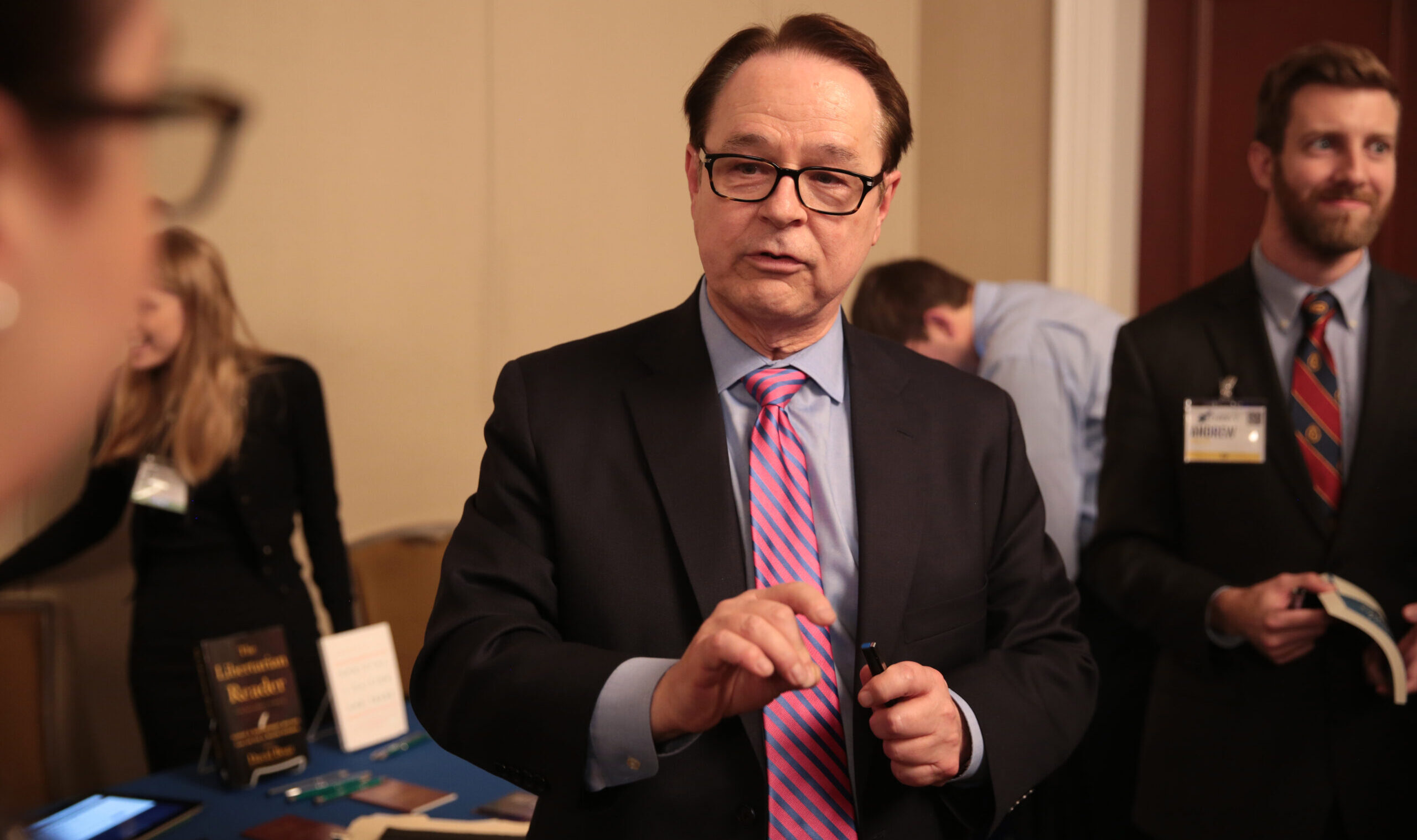
This article was originally published on American Conservative. You can read the original article HERE

David Boaz was long the public face of both the Cato Institute and Beltway libertarianism, arguing for free markets and civil liberties across multiple media platforms for more than 40 years.
Like the think tank he served, Boaz was a non-fusionist libertarian. That means, to put it simply, that he didn’t work within the conservative framework or necessarily try to balance the tensions between liberty and virtue. He was on team liberty.
Nevertheless, Boaz was arguably somewhat conservative within the broader libertarian movement, though it is certainly not a label he would have accepted. Inside the Libertarian Party, he would have been a relative pragmatist, aligned with the wing of the LP that frequently supports ex-Republicans for office. But a Mises Caucus type he pointedly was not.
More importantly, Boaz frequently worked with conservatives on areas of common ground. He also frequently pushed his small-government message to center-right audiences, which were usually at least receptive when Democrats control the White House or Congress, though less so when Republicans hold power.
To my surprise, it’s been 16 years since I reviewed Boaz’s The Politics of Freedom: Taking on the Left, the Right, and Threats to Our Liberties alongside Grover Norquist’s latest book at the time for The American Conservative. George W. Bush’s second term was wrapping up and it was not a good time for the Republican Party or the country.
The economy was in recession amid the worst global financial crisis since the Great Depression. The surge, while declared a success by the White House and its media allies, had failed to solve the fundamental problems with the Iraq War. Bush’s job approval rating would soon bottom out at 25 percent in the Gallup poll.
It was apparent to all but the most partisan that what the Republican Party was doing wasn’t working. (Donald Trump would later tell Jeb Bush in a debate that, by the time his brother was done as president, Abraham Lincoln couldn’t have won the next election.)
Bush had tried a few things Boaz might have recommended. “Republicans win when they cut taxes,” he wrote. But Bush’s No Child Left Behind became more of a boondoggle than a victory for school choice. Medicare Part D, the biggest new entitlement program since Lyndon Johnson was president, was a high (deficit-financed) price to pay for the meager accompanying free-market reforms. Partial Social Security privatization didn’t go anywhere at all despite Republicans holding 55 Senate seats after the 2004 elections, though that might have been a blessing given the stock market collapse that was soon to come.
Boaz argued that there was an important swing vote of small-l libertarians that Republicans had alienated through their record of “war, wiretapping, and welfare-state social spending.” He and David Kirby, then of America’s Future Foundation, found Bush lost 13 points among such voters between 2000 and 2004, though it should be noted that he improved his overall national vote share.
Still, libertarians were the first political force to try to push the Republican Party in a non-Bush direction, even if Ron Paul was not exactly Boaz’s particular flavor of libertarianism. What perhaps more permanently disassociated the GOP from Bushism was a good bit less to Boaz’s liking.
When the Tea Party was all the rage, it looked like populism was going to be channeled in a more libertarian form. Middle American Radicals appeared to be more animated by fiscal concerns and worries about the waning constitutional character of the federal government than social issues or the culture war. That now seems as quaint as Gerald Ford Republicanism all these years later. The GOP cannot live by tax cuts alone.
Subscribe Today
Get daily emails in your inbox
Boaz fought as much over the years about some of these overriding issues with his rivals inside of libertarianism as he did with his conservative friends. He was, in the classical sense, a liberal at heart. And while the Right is especially moving away from some of the emphases and attitudes of Boazian libertarianism in a more populist and communitarian direction, his impact will still be felt long after his death.
There are many people who got their start in politics, policy, and ideas from Boaz, some of them conservative, though perhaps at least as many of them not. This was especially true during the time period when doves were not permitted to fly near the conservative think tank world.
Not a bad legacy to leave behind.
This article was originally published by American Conservative. We only curate news from sources that align with the core values of our intended conservative audience. If you like the news you read here we encourage you to utilize the original sources for even more great news and opinions you can trust!










Comments